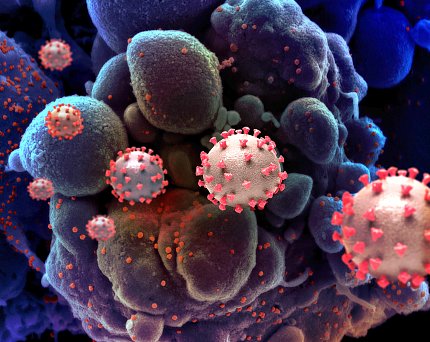Immune Modulator Drugs Improved Survival for People Hospitalized with Covid-19

Photo: NIAID
Treating adults hospitalized with Covid-19 with infliximab or abatacept—drugs widely used to treat certain autoimmune diseases—did not shorten recovery time but did substantially improve clinical status and reduced deaths. This research comes from a large randomized, placebo-controlled clinical trial led by NIH, part of the Accelerating Covid-19 Therapeutic Interventions and Vaccines (ACTIV) public-private initiative.
In some Covid-19 patients, the immune system unleashes excessive amounts of proteins that trigger inflammation that can lead to acute respiratory distress syndrome, multiple organ failure and other life-threatening complications. NIH launched the ACTIV-1 Immune Modulators clinical trial to determine whether certain drugs that help minimize the effects of an overactive immune response could speed recovery and reduce deaths in adults hospitalized with moderate to severe Covid-19.
NCATS coordinated and oversaw the trial with funding from HHS’s Biomedical Advanced Research and Development Authority (BARDA).
This protocol tested several different immune modulators to evaluate multiple investigational agents simultaneously. ACTIV-1 participants were randomly assigned to one of the immune modulator drugs or placebo in addition to the standard of care, which may include remdesivir (Veklury) supplied by Gilead Sciences, Inc., or dexamethasone.
From October 2020 through December 2021, the ACTIV-1 trial enrolled 1,971 participants at 46 medical facilities in the U.S. and 23 medical facilities in Latin America.
“When given in addition to standard of care treatments, like remdesivir and dexamethasone, infliximab and abatacept each offered a substantial reduction in mortality,” said the trial’s protocol chair, Dr. William G. Powderly, director of the Institute for Clinical and Translational Sciences and co-director of the Division of Infectious Diseases at Washington University School of Medicine in St. Louis. “These drugs could potentially add to the therapeutic options available for the treatment of patients hospitalized with Covid-19.”
